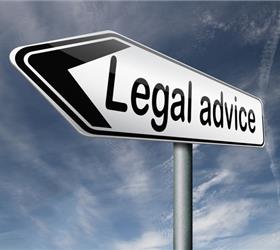Posted: Wednesday, 6 August 2014 @ 12:26

Whilst most solicitors will advise that you should always enter into a written contract when undertaking a major project, often you’re better off signing no contract at all.
In English law, a contract does not have to be a formal written contract; it does not even have to be in writing. Most contracts that SMEs enter into are based on meetings, telephone calls and email exchanges. Sometimes, these are accompanied by written orders or standard terms and conditions.
If anything goes wrong with the performance of a contract, the first thing a lawyer or a court will do is to look at what the contract says. They will examine the written evidence (contracts, orders, terms and conditions, emails, letters, and notes of meetings and telephone calls) and what anyone has to say about the communications. They will then try to piece together exactly what was agreed.
However, if you have signed a written contract, the court will often just look at what that says and ignore all the promises made before you signed it. If the written contract does not in fact say what you agreed, then you are likely to be bound by what is in writing rather than what you actually agreed beforehand.
So when will you be better off without a written contract?
Take this common scenario: you have had extensive contact with a salesman, he made an initial presentation and after that, you had various questions. He answered all your questions positively and promised you the world.
You’re then sent a contract to sign. You’re busy so don’t read it carefully, Maybe it is written in legal language and you don’t quite understand it all. Sometimes they put you under time pressure to sign. In any event, you just sign it.
It is not usually until something later goes wrong that you or your lawyer looks at the contract only to discover that what you thought you had signed wasn’t actually what the contract says.
Usually, contracts contain clauses (normally towards the end) saying that the contract is an “entire agreement” and that no party can rely on representations made prior to signing it. What this means is that, usually, you will not be able to say later that the contract was different from what you actually agreed with the salesman. You are bound by what the written contract says.
How does this happen?
Sometimes, it is done deliberately to trick you but, usually, the other party is just trying it on by adding clauses to the contract that are very much in their favour. They anticipate that this to lead to negotiations on the terms and expect you to get back to them suggesting changes to the contract before signing it.
A lot of the time, clauses are added covering events that you never even discussed with the salesman. Maybe these are things that you don’t consider crucial right now but they can often come back to bite you later.
It can often be that the negotiations that lead up to the signing of the written contract set out better what was actually agreed than the contract itself. If this is the case, you might be better off signing no written contract at all.
If you are going to sign a contract, and often it is best to do so as it avoids arguments later, make sure it says what you have agreed. Go through it carefully, clause by clause and consider what each clause means. If you’re not sure, get some legal advice on just what it says and be prepared to negotiate. After all, if they’re keen for your business, they’ll usually be prepared to go to some lengths to accommodate you.
Gary Cousins
Business Solicitor
For free advice on this topic please call us on 0845 003 5639.
Blog by Gary Pascual
Gary has been providing legal advice to shareholders, directors and business owners for over 25 years. Specialising in dispute resolution Gary is based in Birmingham with clients throughout the UK and overseas.
View profile
This blog is not intended to constitute legal advice, nor is it intended to be a complete and authoritative statement of the law, and what we say might be out of date by the time you read it. You should always seek legal advice to confirm whether or how any information in this article applies to your particular situation. We offer a
free telephone consultation to discuss your particular circumstances.